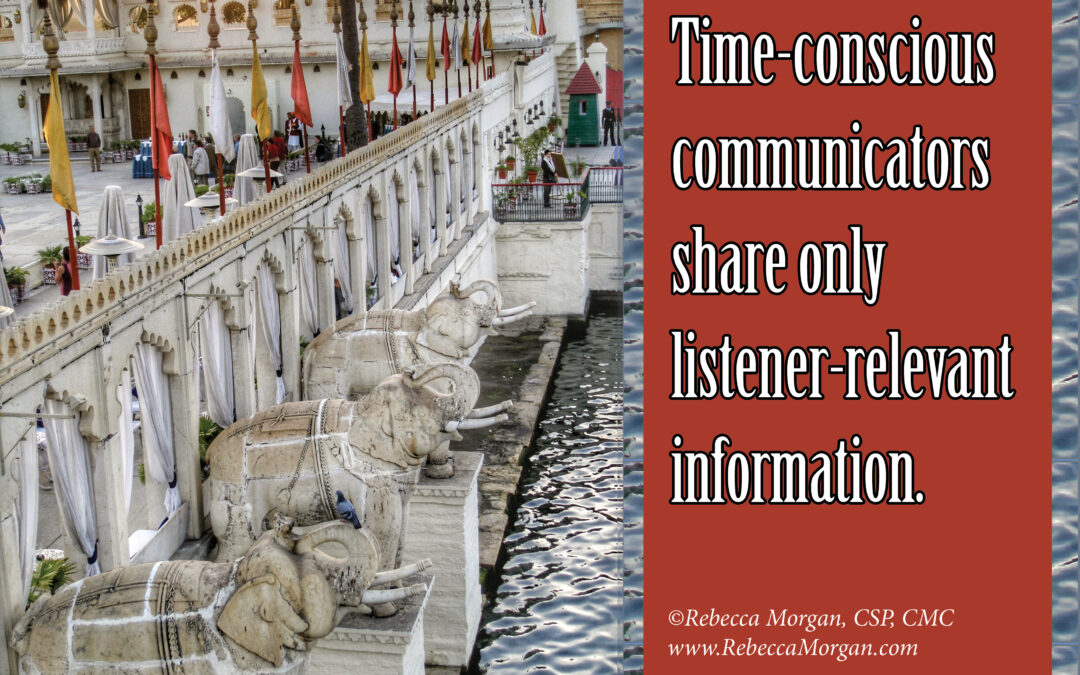I’ve noticed a lot of people — maybe 90% — aren’t very conscious of their conversational habits. The most common habit I’ve noticed is no awareness of the relevance of what the speaker is saying to their conversational partner.
I began to wonder how much more productive we would be if we focused our comments on only those of importance to our listeners. Granted, we can’t always know what the other would find important, and sometimes, with close friends and family, we want to share something that is significant to us as a way of sharing ourselves, but may only be interesting to our loved one because they care about us.
But let’s focus on workplace conversations.
Have you been caught in a conversation with a co-worker that has taken way more time than it needed because the co-worker rambled on and on? I’d be surprised if you said “no” as this is common. Imagine how much more you could both get done if the conversation stayed focused on salient information.
I recently had discussions with two doctors treating me and was astounded at how much time they wasted on irrelevant information. Doctors’ time is typically rationed carefully, often with only 15 minutes allotted per patient. So you’d think they would be hyperaware of their wasting time sharing info that has no bearing on that patient. But many of them are not.
One doctor had asked me to watch a video explaining a procedure she recommended. When we next talked, I began by saying I’d watched the video. She then spent 5 minutes telling me what was in the video. She didn’t ask if I had questions about the video; she just launched into explaining what I already knew, adding information that wasn’t relevant to my situation. She wasted 1/3 – 2/3 of our time on irrelevant information.
Another doctor spent 5 of our 15 minutes telling me the history of the drug she was prescribing, and it’s warnings for pregnant women. She could see by my chart that was not relevant to my situation, nor was it germane to understand the history of the meds. She could have used our time more wisely, or we could have ended early, which we both would have been happy about.
The key to being a time-conscious communicator is to give only enough information to be useful to your listener. A few sentences will usually suffice. You don’t want to be curt, but you also don’t want to ramble. If your listener needs more information, s/he will nearly always ask. Then you can elaborate.
So before going on and on and on, ask your listener if s/he has questions or wants more detail. My guess is most will be just fine with an overview.

